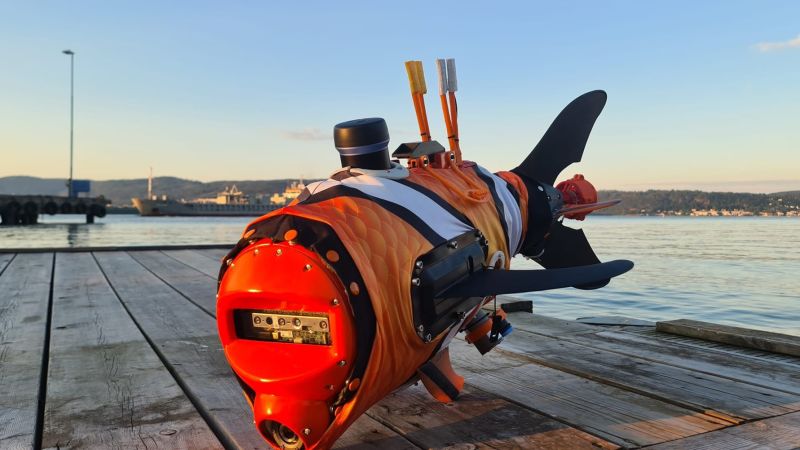The world’s oceans, lakes, and rivers are facing increasing threats from climate change, pollution, urbanization, and growing demand, putting their ability to sustain life at risk. Simeon Pieterkosky, co-founder of Aquaai, emphasizes the importance of better data to understand the health of waterways in order to effectively conserve these vital resources. Aquaai has developed fishlike drones that collect data from underwater environments, designed to swim and look like real fish to integrate with natural habitats without disturbing other creatures.
These underwater drones are equipped with cameras and sensors to measure various metrics such as oxygen levels, salinity, and pH levels. Inspired by his daughter’s concern for the ocean crisis, Pieterkosky, with a background in animatronics, ensures that the drones can navigate through obstacles smoothly and swim alongside fish to collect data on water quality and fish health. Aquaai has used its technology in California and Norway, operating in both fresh and saltwater environments, and plans to expand its usage to regions like the Middle East, where water scarcity is a significant challenge.
The technology could be used for water management, sustainable aquaculture operations, monitoring coral health, and detecting derelict fishing gear in the Middle East region. Thompson and Pieterkosky have relocated to Abu Dhabi and are part of a tech ecosystem program at Hub71, aiming to further develop and integrate their underwater drones for various applications. With the need for better automation in water resource monitoring globally, Aquaai’s drones provide a non-invasive and cost-effective method for collecting real-time data for decision-making.
Despite its potential, Aquaai faces funding challenges in commercializing its technology, with less than 3% of climate tech funding in 2023 allocated to water tech projects. The company has raised $1.6 million in funding from venture capital firms, angel investors, and family offices, but more support is needed to scale its operations. Other agencies and companies are also developing underwater drones for different purposes, indicating a growing interest in this technology. Aquaai hopes that investors will recognize the importance of their work in protecting and conserving water resources for the future of humanity.
In conclusion, Aquaai’s innovative fishlike drones present a promising solution for monitoring and gathering data on the health of waterways worldwide. With the increasing threats to these vital resources, such as climate change and pollution, better technology and automation are needed to ensure efficient water management and decision-making. Despite funding challenges, Aquaai remains committed to developing and expanding its underwater drone technology for a variety of applications that can contribute to the conservation and sustainable use of water resources globally.


